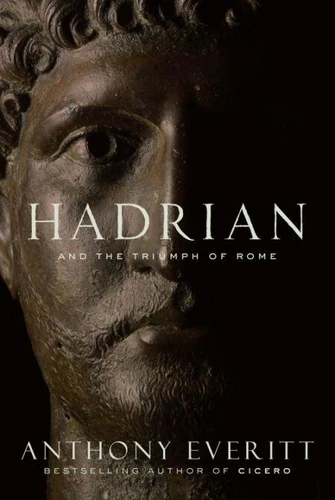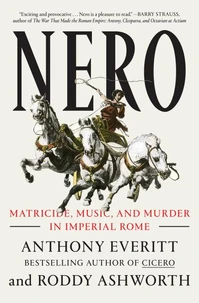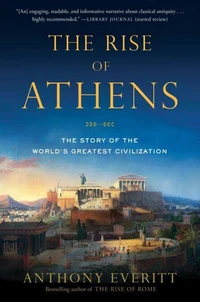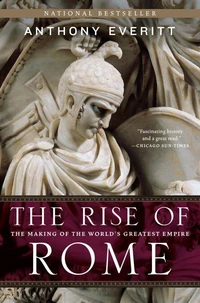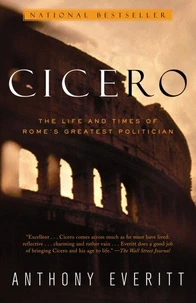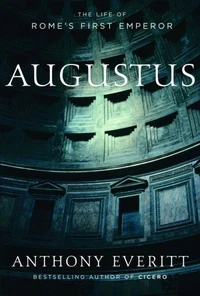Hadrian and the Triumph of Rome
Par :Formats :
Disponible dans votre compte client Decitre ou Furet du Nord dès validation de votre commande. Le format ePub protégé est :
- Compatible avec une lecture sur My Vivlio (smartphone, tablette, ordinateur)
- Compatible avec une lecture sur liseuses Vivlio
- Pour les liseuses autres que Vivlio, vous devez utiliser le logiciel Adobe Digital Edition. Non compatible avec la lecture sur les liseuses Kindle, Remarkable et Sony
- Non compatible avec un achat hors France métropolitaine
 , qui est-ce ?
, qui est-ce ?Notre partenaire de plateforme de lecture numérique où vous retrouverez l'ensemble de vos ebooks gratuitement
Pour en savoir plus sur nos ebooks, consultez notre aide en ligne ici
- Nombre de pages432
- FormatePub
- ISBN978-1-58836-896-6
- EAN9781588368966
- Date de parution01/09/2009
- Protection num.Adobe DRM
- Taille6 Mo
- Infos supplémentairesepub
- ÉditeurRandom House
Résumé
"A fascinating insight into the mind of the Roman emperor."-Sunday Telegraph (London)Born in A. D. 76, Hadrian lived through and ruled during a tempestuous era, a time when the Colosseum was opened to the public and Pompeii was buried under a mountain of lava and ash. Acclaimed author Anthony Everitt vividly recounts Hadrian's thrilling life, in which the emperor brings a century of disorder and costly warfare to a peaceful conclusion while demonstrating how a monarchy can be compatible with good governance.
What distinguished Hadrian's rule, according to Everitt, were two insights that inevitably ensured the empire's long and prosperous future: He ended Rome's territorial expansion, which had become strategically and economically untenable, by fortifying her boundaries (the many famed Walls of Hadrian), and he effectively "Hellenized" Rome by anointing Athens the empire's cultural center, thereby making Greek learning and art vastly more prominent in Roman life.
By making splendid use of recently discovered archaeological materials and his own exhaustive research, Everitt sheds new light on one of the most important figures of the ancient world.
What distinguished Hadrian's rule, according to Everitt, were two insights that inevitably ensured the empire's long and prosperous future: He ended Rome's territorial expansion, which had become strategically and economically untenable, by fortifying her boundaries (the many famed Walls of Hadrian), and he effectively "Hellenized" Rome by anointing Athens the empire's cultural center, thereby making Greek learning and art vastly more prominent in Roman life.
By making splendid use of recently discovered archaeological materials and his own exhaustive research, Everitt sheds new light on one of the most important figures of the ancient world.
"A fascinating insight into the mind of the Roman emperor."-Sunday Telegraph (London)Born in A. D. 76, Hadrian lived through and ruled during a tempestuous era, a time when the Colosseum was opened to the public and Pompeii was buried under a mountain of lava and ash. Acclaimed author Anthony Everitt vividly recounts Hadrian's thrilling life, in which the emperor brings a century of disorder and costly warfare to a peaceful conclusion while demonstrating how a monarchy can be compatible with good governance.
What distinguished Hadrian's rule, according to Everitt, were two insights that inevitably ensured the empire's long and prosperous future: He ended Rome's territorial expansion, which had become strategically and economically untenable, by fortifying her boundaries (the many famed Walls of Hadrian), and he effectively "Hellenized" Rome by anointing Athens the empire's cultural center, thereby making Greek learning and art vastly more prominent in Roman life.
By making splendid use of recently discovered archaeological materials and his own exhaustive research, Everitt sheds new light on one of the most important figures of the ancient world.
What distinguished Hadrian's rule, according to Everitt, were two insights that inevitably ensured the empire's long and prosperous future: He ended Rome's territorial expansion, which had become strategically and economically untenable, by fortifying her boundaries (the many famed Walls of Hadrian), and he effectively "Hellenized" Rome by anointing Athens the empire's cultural center, thereby making Greek learning and art vastly more prominent in Roman life.
By making splendid use of recently discovered archaeological materials and his own exhaustive research, Everitt sheds new light on one of the most important figures of the ancient world.

